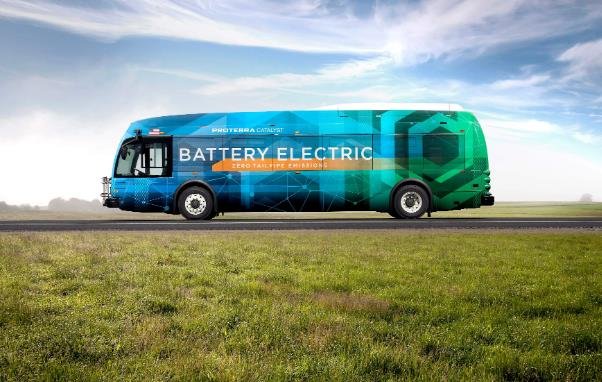Proterra, a company that makes electric buses and batteries, filed for Chapter 11 bankruptcy protection on Monday, August 7, 2023, after failing to repay its massive debt. The company also said it will not contest its delisting from the Nasdaq stock exchange, which is scheduled for August 17. Proterra’s bankruptcy and delisting are the latest setbacks for the once-promising EV startup, which went public in June 2023 through a merger with a special purpose acquisition company (SPAC). What led to Proterra’s downfall and what does it mean for its future?
Proterra’s Rise and Fall
Proterra was founded in 2004 by Dale Hill, a former engineer at Lockheed Martin, who wanted to create zero-emission buses that could compete with diesel and natural gas buses. The company attracted investors such as Kleiner Perkins, General Motors, BMW, and Daimler, and secured contracts with transit agencies across the U.S. and Canada. Proterra claimed to have more than 50% of the North American electric bus market share, and boasted of its innovative battery technology and fast-charging stations.
However, Proterra also faced several challenges that hampered its growth and profitability. The company had to compete with other EV bus makers such as BYD, New Flyer, and Lion Electric, as well as traditional bus makers that were transitioning to electric vehicles. The company also faced regulatory hurdles, supply chain disruptions, quality issues, and customer complaints. Proterra’s revenue growth slowed down in recent years, while its losses and debt piled up.

In January 2023, Proterra announced that it would go public through a merger with ArcLight Clean Transition Corp., a SPAC sponsored by ArcLight Capital Partners, a private equity firm focused on energy infrastructure. The deal valued Proterra at $1.6 billion and was expected to provide $648 million in cash to fund its expansion plans. The merger was completed in June 2023, and Proterra’s shares began trading on the Nasdaq under the ticker symbol PTRA.
However, the SPAC deal also exposed Proterra’s financial troubles. The company reported a net loss of $221 million on revenue of $193 million in 2022, and had $176 million of debt as of June 30, 2023. The company also faced several lawsuits from shareholders who accused it of making false and misleading statements about its business prospects and financial condition. Proterra’s shares plunged from their peak of $24.75 in February to below $1 in August.
Proterra’s Bankruptcy and Delisting
On Monday, August 7, 2023, Proterra filed for Chapter 11 bankruptcy protection in the U.S. Bankruptcy Court for the District of Delaware. The company said it had secured $200 million in debtor-in-possession financing from a group of lenders led by Oaktree Capital Management, which will allow it to continue its operations while it restructures its debt and seeks a buyer or a partner.
Proterra said it had received interest from several potential strategic and financial partners who could help it emerge from bankruptcy as a stronger and more competitive company. The company also said it had reached an agreement with most of its creditors to reduce its debt by more than 80% through a debt-for-equity swap.
However, Proterra also said it will not fight its delisting from the Nasdaq, which is expected to take effect on August 17. The company said it received a notice from the Nasdaq on July 28 that it had failed to comply with the minimum bid price requirement of $1 per share for 30 consecutive trading days. The company said it does not intend to appeal the delisting decision or take any action to regain compliance.
Proterra’s delisting means that its shares will no longer be traded on a major stock exchange and will likely move to the over-the-counter (OTC) market, where they will be subject to less regulation and liquidity. This will make it harder for investors to buy or sell Proterra’s shares or access information about the company’s financial performance.
The Bottom Line
Proterra’s bankruptcy and delisting are the latest blows for the EV bus maker, which once had high hopes of becoming a leader in the green transportation sector. The company’s downfall was caused by several factors, including fierce competition, regulatory hurdles, supply chain disruptions, quality issues, customer complaints, slowing revenue growth, mounting losses, and massive debt.
Proterra is not the only EV company that has struggled after going public through a SPAC merger. Other examples include Nikola (NKLA), Lordstown Motors (RIDE), Canoo (GOEV), and Fisker (FSR), which have all faced lawsuits, investigations, management changes, production delays, or financial difficulties.
Proterra said it hopes to emerge from bankruptcy as a stronger and more competitive company with the help of new partners and creditors. However, the company faces an uncertain future and a long road to recovery. Investors who own Proterra’s shares should be prepared for more volatility and risk, and should do their own research and analysis before making any decisions.
